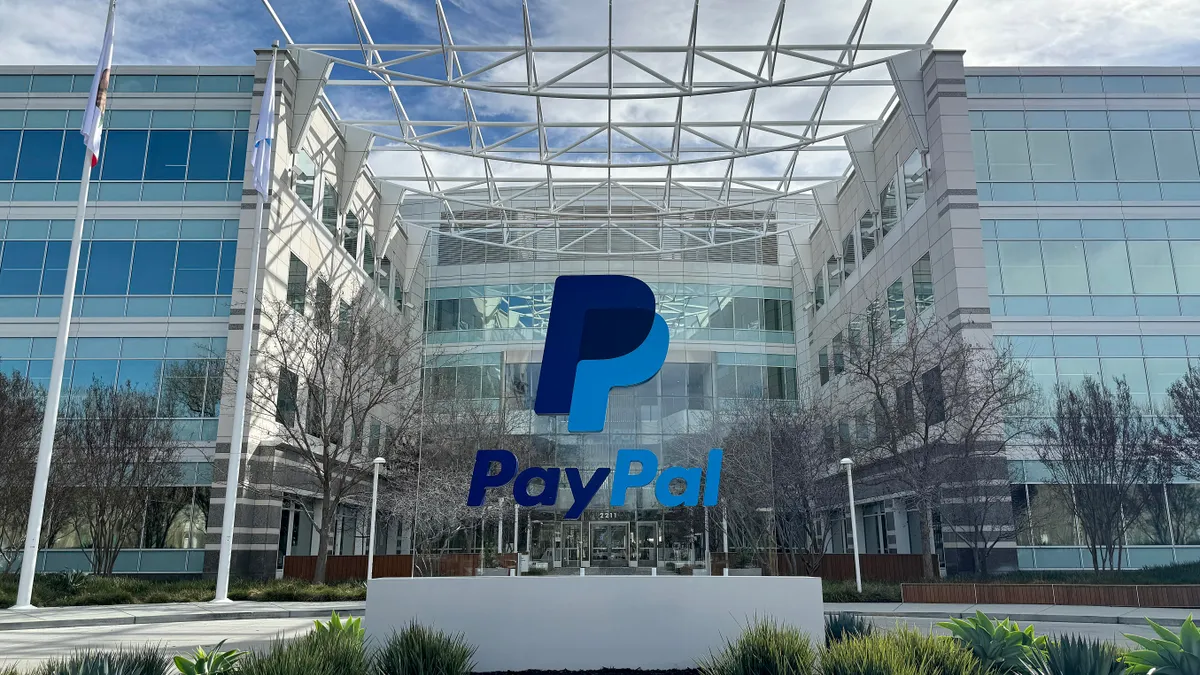When it relaunches its debit account services soon, Discover Financial Services is counting on the offering to help it compete with fintechs.
Riverwoods, Illinois-based Discover announced last April that it had revamped its debit account product, offering cashback rewards with a checking account.
Although the company saw a high volume of applications for the product, “there was also a higher level of fraud coming in than what we expected,” said Discover Chief Financial Officer John Greene during a Feb. 14 appearance at Credit Suisse’s Financial Services Forum. He didn’t specify the number of applications, nor did he mention the type of fraud, how much was involved or what the company is doing to battle it.
Service levels suffered as the company responded to the fraud issue, so Discover stopped taking applications for the product last summer and pulled back on marketing for it as well, CEO Roger Hochschild said during a December conference appearance. The product will be relaunched with “more advanced capabilities,” he said.
In a separate fraud-fighting effort, Discover this week also forged a new partnership with Stripe, the digital payments company said Tuesday, to be part of its issuer network focused on tackling fraud.
Discover, which has declined to comment on the type of fraud the debit product was experiencing, the financial impact of it or the capabilities being added to the product, aims to relaunch the debit offering in the first half of the year, a spokesperson said in January.
Discover declined to make an executive available to talk about the relaunch, and didn’t respond to requests for comment Wednesday. “There’s a good amount of curiosity” related to the product’s enhancement before it’s relaunched, said Bank of America Securities Analyst Mihir Bhatia.
Compared to neobanks and fintechs, Discover has been “a lot slower in pushing the accelerator, if you will, in growing that deposit product,” Bhatia said.
Now, Discover appears eager to get the product back on the market. Its features “position us well over the long term versus some of the fintech competitors that were offering savings and checking products,” Greene said. One of those perks is giving employed customers early access to their paychecks.
Additionally, given Discover is both a network and a card issuer, the checking account allows the company to tap debit interchange revenue “and then actually pass some of that back onto our customers,” Greene said.
Bhatia expects that 1% cashback perk – atypical for debit, and something Discover can provide because it earns higher interchange revenue than large banks – will help the product stand out from similar offerings.
The company’s customer service approach is likely to be a differentiator, too, compared to fintechs that might use chatbots to handle customer inquiries, Bhatia said.
Upon relaunch, the company envisions the debit product “will ultimately create an entirely new set of customers that, over time, can become customers that we’ll also be able to lend profitably to,” Greene said.
To that end, Discover expects to maintain higher marketing spending levels. The company spent 28% more on marketing and business development in 2022 than the year prior, totaling $1.04 billion, according to its most recent earnings report.
Executives expect a double-digit increase in marketing spending for this year, with customer acquisition expenses and advertising of the debit product being a big focus, Greene said during the company’s fourth-quarter earnings call in January. Increased spending in that area has been driven by the opportunity executives see to grow Discover’s customer base and raise product awareness.
“We’ll put a lot of weight behind that,” Hochschild said of the debit relaunch during the call.
Another reason Discover is likely eager to get the product back online: The company can fund its credit card loan book with the debit product, Bhatia pointed out. “For a lot of the neobanks, they’re still working out their full revenue models, which these guys aren’t,” he said.



















